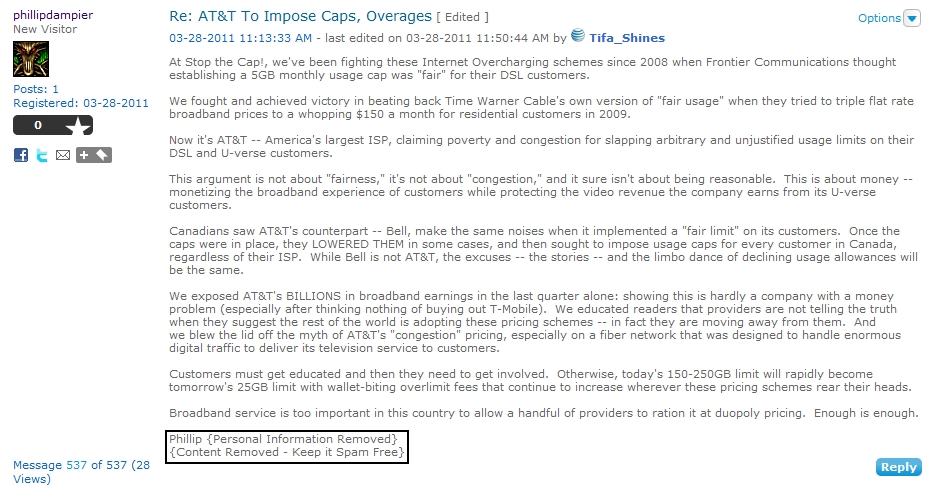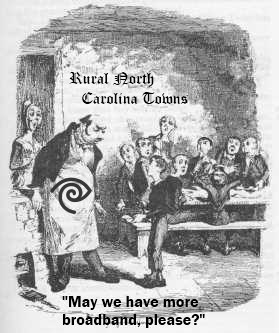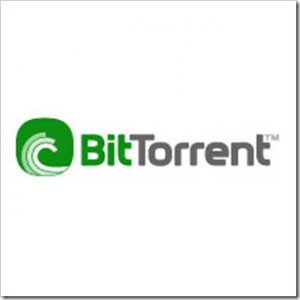The Conservative government of Stephen Harper technically fell Friday after a no-confidence motion organized by opposition parties forced Canada’s leader to dissolve Parliament Sunday. Harper announced new elections will be held May 2nd.
While broadband was certainly not a key issue in the take-down of the government, the forthcoming preoccupation with elections comes at the same time the Canadian Radio-television and Telecommunications Commission is revisiting its earlier decision about usage-based billing, dealing with conflicts over increased competition in the wireless market, and fielding controversy over the agency’s newest commissioner and vice-chair.
The government’s latest pick for the CRTC, the eminently unqualified (but well-connected) former politician/talk show host-turned regulator Tom Pentefountas, is scheduled to take his seat at the Commission this April. The “Pentefountas Matter” threatens to become a political sideshow here in Ottawa as opposition parties feast on a host of missteps from the former president of Action Démocratique du Québec, a Quebec political party that some have called a Francophone ‘mini-me’ version of the Tories inside Quebec.
“Here is a man who comes to a broadband and telecommunications regulatory body with just one telecom qualification on his resume — he was a radio talk show host,” shares François Dumont, a Stop the Cap! reader in Montreal. “UBB (usage based billing) to this man could be a brand of suntan lotion. In America, it would be like naming Rush Limbaugh to the FCC.”
NDP MP Charlie Angus, one of Canada’s most vocal, pro-consumer critics of the Conservative Party’s ‘corporate agenda-meets-federal policies’ dismissed Pentefountas as an unqualified mess who lacks credentials for the post and won it only through his friendship with Conservative Senator Leo Housakos and Dimitri Soudas, Prime Minister Harper’s spokesman.
[flv width=”480″ height=”380″]http://www.phillipdampier.com/video/Charlie Angus Pentefountas Affair.flv[/flv]
Charlie Angus on the attack during Question Time in Parliament over the appointment of Tom Pentefountas. (4 minutes)
Pentefountas made matters worse for himself this week when he declared he deserved to be vice-chair of the CRTC because he “earned it.”
That reasoning has not impressed Angus, or some members of Canada’s Liberal party, who accuse the government of cronyism for appointing an unqualified candidate to the CRTC as the agency is mired in controversy and generates headlines in the media with every policy decision. Angus isn’t even sure if Pentefountas even formally applied for the job. When asked, Pentefountas would only say he “expressed an interest.”
Now, members of several opposition parties are calling on the Conservatives to fire Pentefountas before he gets the keys to his office.
Meanwhile, the CRTC continues to dig in its heels about the parameters of the review of its earlier decisions about usage-based billing.
With the applause of telecom business interests in Canada, the Commission has already fixed the future review around its own preconception of the “facts” about UBB:
The two guiding principles for the review are that “ordinary consumers served by small Internet service providers should not have to fund the bandwidth used by the heaviest retail Internet service consumers”; and that “it is in the best interest of consumers that Small ISPs, which offer competitive alternatives to the incumbent carriers, should continue to do so.”
The agency plans hearings for July, but few broadband observers expect the Commission will depart much from its original conclusion Canadians need to pay significantly higher broadband bills for the good of the providers delivering the service. Industry Minister Tony Clement continues his efforts to soothe angry Canadian consumers with a promise to overturn the agency’s decision if it continues to give a thumbs-up to UBB. But government critics say the mandate given to the CRTC is the real problem — so long as the Conservatives insist the CRTC take a deregulatory approach to telecommunications, the longer the green light on higher prices and less competition will continue to shine.
With most observers predicting the Conservatives are on track to win the spring elections, it is unlikely any major changes in telecom policy are forthcoming. Technology columnist Michael Geist suggests voters across Canada can upset conventional wisdom by making telecom issues a major focus of the forthcoming campaign, urging candidates to “vote for the Internet,” supporting consumer-friendly positions like a rejection of UBB and embracing forward-looking broadband policies.
Paul-Andre Dechêne is Stop the Cap!’s correspondent based in Ottawa, Ontario.
[flv width=”640″ height=”380″]http://www.phillipdampier.com/video/Charlie Angus on UBB.flv[/flv]
Charlie Angus in another exchange in Parliament with Industry Minister Tony Clement over the issue of usage-based billing. (2 minutes)


 Subscribe
Subscribe





